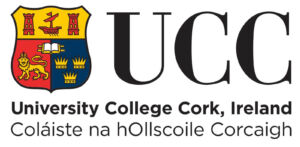Msc in Data Science and Analytics
Key Points
The Master of Science and Data Analysis, jointly offered by the School of Computer Science and Information Technology and the Department of Statistics, provides education in the key principles of this rapidly expanding area. The combination of sophisticated computation and statistics modules will develop your skills in database administration, programming, summarization, modeling, data visualization, and data interpretation. The program provides graduates with an opportunity, through the development of a research project, to investigate the most applied elements of the disciplines.
Students must earn 90 credits through a combination of core modules (30 credits), elective modules (30 credits), and a dissertation (30 credits).
Program Structure
Course practices
A typical 5 credit module:
- 2 hours of conference per week
- 1-2 hours of internship per week
Outside of these regular hours, students must study independently by reading and working in the labs and exercises.
Why choose this course
The Master in Data Science and Analytics is a meaningful collaboration between the Faculty of Computer Science and Information Technology and the Department of Statistics, designed to provide graduates with the skills and knowledge necessary to help businesses and agencies to deal with ever-growing and complex data. The program emphasizes the application of Computer Science and Statistics methodologies that help transform data into useful information that can support decision-making.
Career opportunities
This program aims to prepare students to manage, analyze and interpret large heterogeneous data sources. Graduates will design, compare and select appropriate data analysis techniques, using software tools for data storage / management and analysis, machine learning, as well as probabilistic and statistical methods. These capabilities are at the core of companies constantly faced with the need to deal with large data sets.
Companies currently seeking graduates with skills in data analytics include: analytics, financial services and consulting firms, or government agencies.
Companies that actively hire our graduates:
Accenture, Aer Lingus, Agility M3, Allied Irish Banks, Altada Technology Solutions Ltd, Amazon, Apple, Bank of America Merrill Lynch, Bank of Ireland, BT, Central Statistics Office, Cisco, CiTi-Technology, Clearstream, Cloudreach, Dell EMC , Deloitte, Deutche Bank, Enterprise Ireland, Ericsson, Ernst & amp; Young, Ervia, Facebook, First Derivatives, Google, Guidewire, Intel, IBM, Janssen, KPMG, Logitech, Microsoft, Open Text, Paddy Power, Pfizer, Pilz, PWC, SAP Galway, Screendragon, Transverse Technologies, Trend Micro, Tyco, Uniwink, Verizon Connect, Snipp Interactive, Version 1 (software), VMware, and more.
Starting salaries
There is a growing demand for graduates who can collect, interpret, manage and store large volumes of data. Graduates can work as analysts, database administrators, data warehousing consultants, business intelligence consultants, to name just a few. Employment agencies report that typical salaries range from € 45,000 to € 95,000, depending on industry and experience.
Admission requirements
Candidates must have:
- earned a second grade with class I honors in a primary honors degree (NFQ, level 8) in computer science or mathematical science or
- a Second Class Honors Grade I in a primary honors degree (NFQ, Level 8) with strong numerical content (eg, engineering, finance, physics, biosciences, or economics). In such cases, the program team must be satisfied that the numerical content is sufficient to enter the program and that applicants have an added grade of a second-class honors degree in the appropriate modules.
Applicants who do not meet the above standard entry requirements will also be considered under recognition of prior learning (RPL) if they have a college degree (NFQ, level 8) and a minimum of 5 years of verifiable relevant industry experience.
Applicants who do not have a primary degree will only be considered with a minimum of 10 years of verifiable relevant industry experience.
Candidates from Grandes Écoles Colleges are also eligible to apply if they are studying a related discipline at an ENSEA or EFREI graduate school and are eligible to enter the final year (M2) of their program.
Shortlisted applicants who do not meet the standard entry requirements will be invited for an interview.
English requirements
All graduate applicants whose first language is not English must provide evidence of English language proficiency. Certain tests (eg, IELTS, TOEFL, and Pearson PTE) have a three-year time limit on their validity and will apply. English language tests must be taken no more than three years prior to the start of a program.
Please note that Secure English Language Test (SELT) scores must be obtained in a single session of the corresponding qualification (for example, IELTS and TOEFL). We will not accept a combination of individual component scores from multiple tests.
Applicants who are nationals of a country that, according to the UCC, is predominantly English-speaking, or who have a degree or equivalent qualification that was taught in a country that is considered predominantly English-speaking, will normally be assumed to have met the language requirements of the UCC. However, in some circumstances, applicants may be required to present evidence of an English language qualification to satisfy the college program entry requirements.
Request your quote
An advisor will contact you by phone and email within the following hours


